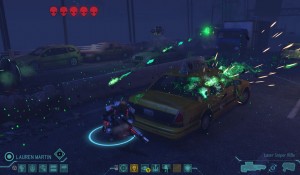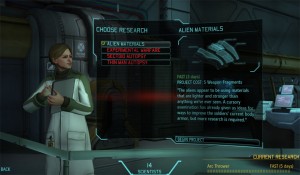This week I have been looking into how we get one of the virtual worlds projects to put some pressure on the people taking part in a simulation, but not make things so over the top that they give up. There are lots of gaming examples for entertainment that place layers of pressure on people, so there is lots of inspiration to draw upon. In particular though, the latest incarnation of XCOM, Enemy Unknown provides a lot of pointers.
XCOM is a turn based strategy game. For non gamers who may thing it is all fast moving running around and trigger reactions they my be surprised to find out that sometimes games offer a bit of time and thought. XCOM gets you onto a battlefield with a small squad of soldiers against an enemy alien force of invaders. Different units have different abilities on both sides and how you use these and how you take your turns is the key. In many ways this is like a game of chess. You can take as long as you like to asses the situation and make each of your turn based allocations of movement.
 (Image from xcom.com)
(Image from xcom.com)
Just these battles alone provide a degree of stress induction. When you are stressed you make worse decisions, so you start to work out when to act carefully or rashly to deal with an ever changing situation. Probability and chance throw curve balls as you decide to take a percentage shot at an alien only to be let down by the hidden dice rolling against you. You also have to consider when is a time for a tactical withdrawal. Soldiers that survive missions get promoted and gain extra abilities. Lose a high ranking squad and you are on the back foot with a group of rookies.
This on the ground tactical part of the game is the major part of the experience but there is a higher level strategy as you have to finance this ongoing war and research new weapons and engineering facilities. There are so many facets to this and resources are very tight that you do have to make some big decisions that impact the flow of the game. Do you focus on putting up satellites and fighters to deal with incoming ships, direct scientist to research defensive capabilities or powered up weapons for the soldiers. How much do you expand your base, considering the power consumption of new facilities.
 (Image from xcom.com)
(Image from xcom.com)
The multi faceted nature of what has to be considered is what makes this game work particularly well. You may be in the thick of it in a combat situation, considering the intricate detail of which move or weapon to use but you have in the back of your mind what needs to be done before the next mission and what to focus on there.
As with many games though the odds are against you, interestingly the game does have an impossible setting. Indicating that the alien invasion will be successful, but how long can you survive the inevitable loss. Interestingly this harks back to the original arcade game space invaders, where you are pretty much never going to win, you run out of money or time, but you always lose.
So the key here is that you need to feel that you can make a difference, but you have to know that there are other forces at work, other decisions that need to be made in and around the specific detail of any event. Any simulation needs to layer the pressures on the participants. That may be actual decisions or levels of detail of information that inform the narrative but aim to overload and confuse just to the point of stress. Too much and there is almost no point proceeding.
Balance in games and simulations is the key. Atmosphere and a story let humans fill in some of their own levels of details as that engage with it. Whilst there may be an algorithm as work obscuring it, or making it less obvious and throwing in random elements help a greta deal.
XCOM is a great game (as was its 1995 original). Turn based strategy games still work too which is great to see.

Leave a Reply